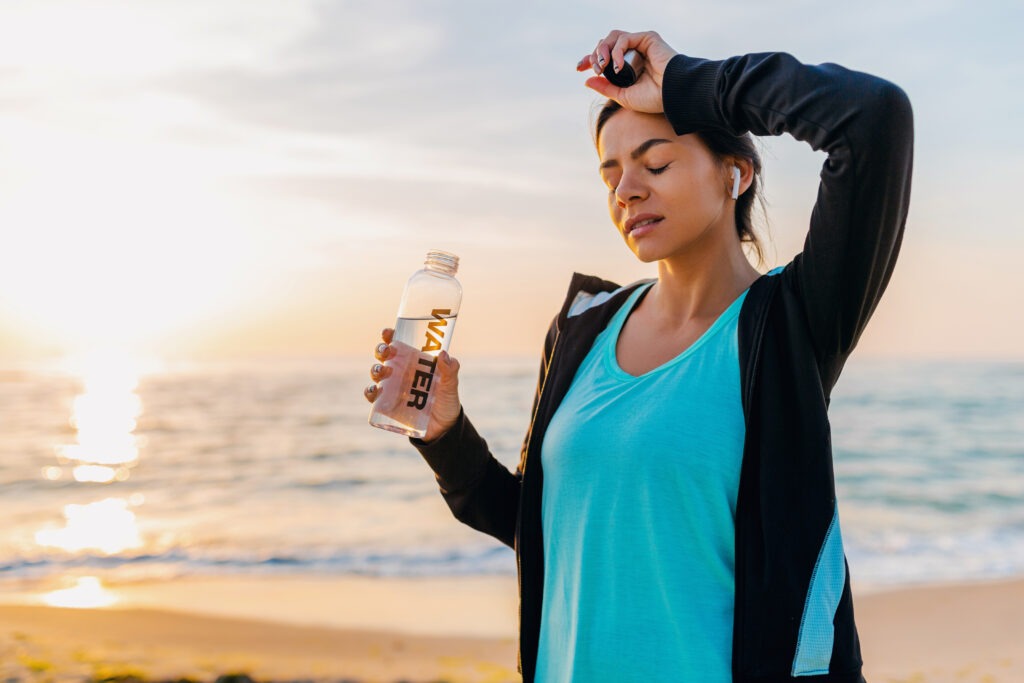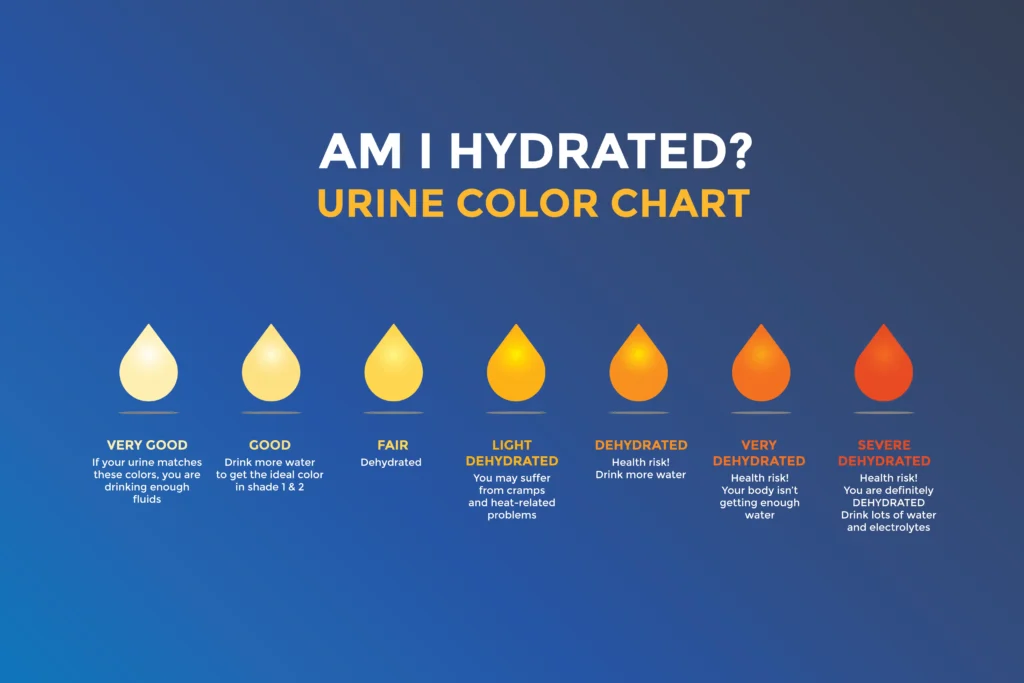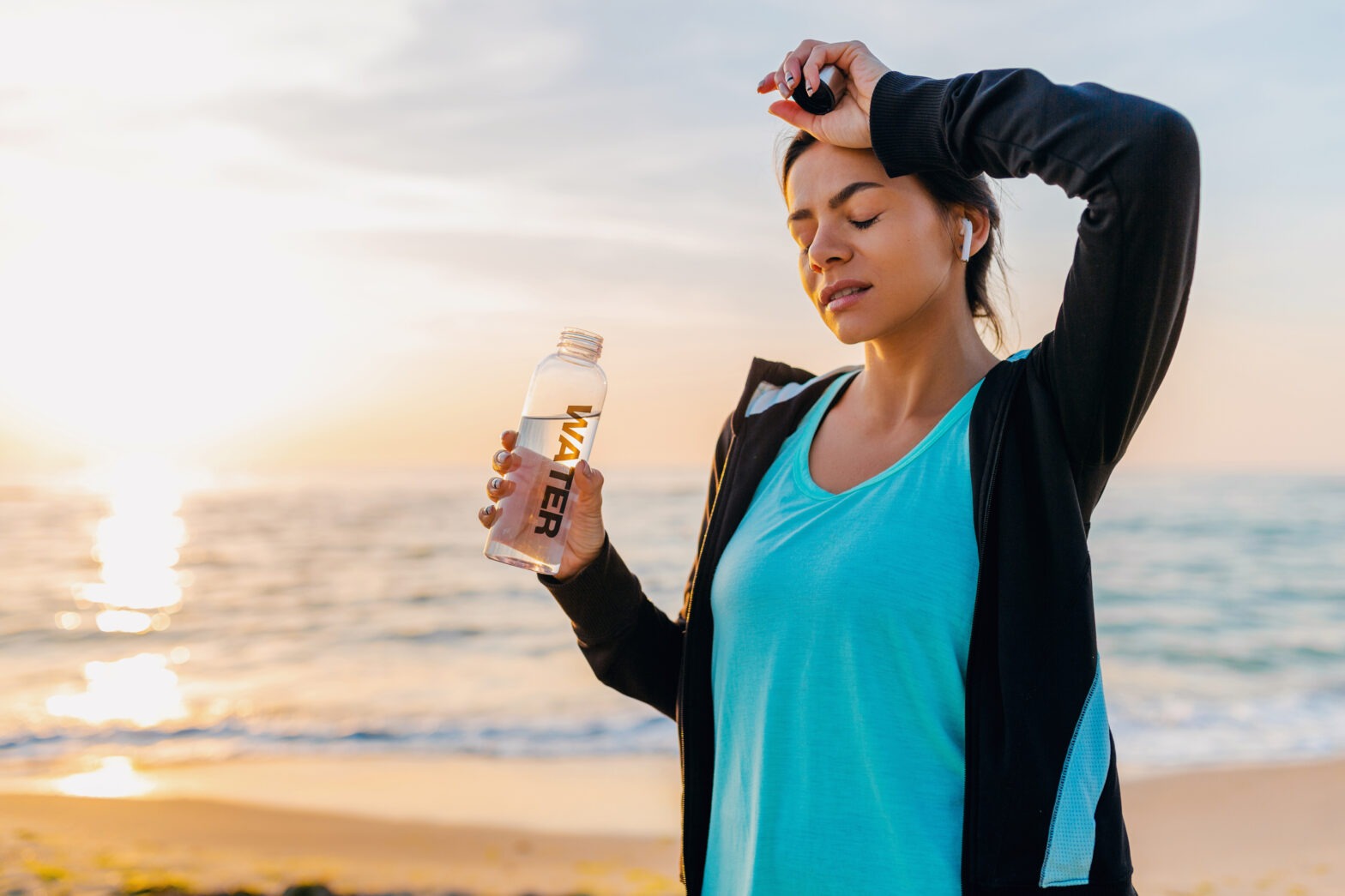
They say eating your greens and staying active is the key to healthy aging. But the importance of hydration are some times overlooked. Proper hydration plays a vital role in our overall health and is crucial to keep our bodies functioning at their best.
We all know how important water is for keeping us healthy. In fact, 60% of the human body is water. It’s what fuels cells and keeps our brain and body working. Yet, dehydration is surprisingly common – many people don’t consume enough water daily, and some even drink dehydrating beverages like sugary drinks and alcohol which can further dehydrate them
What is Dehydration?
Dehydration is when you’re losing more fluid than you’re taking in. You’re losing up to a liter of water each day as water evaporates off your skin and lungs as you breathe out. You’re also losing water through urination and profuse sweating and bowel movements. Water loss can also be significantly increased by hot and humid weather, diarrhea, fever and vomiting.
When your hydration levels drop below the recommended amount, it can lead to all sorts of health problems and symptoms including:
- Diarrhea or Constipation: Without enough water, digestion slow leading to constipation or conversely, diarrhea which further dehydrates.
- Dry skin: Skin may become flaky or itchy, a sign you may not be hydrated.
- Fatigue: Dehydration lowers energy levels, making you feel tired.
- Dry mouth: A common sign of needing fluids.
- Headaches: Persistent dehydration can trigger headaches.
- Weight gain: Thirst can mimic hunger, leading to unnecessary eating.
Even mild dehydration can be serious if you don’t take care of it. Keep in mind that thirst is usually the first sign your body needs to drink more water.
Should I Drink 8 Glasses of Water A Day?
There’s no science behind this old rule, but it’s a good starting point. How much to drink depends on your activity level, location, and general health. So, listen to your body’s thirst. If you don’t know how much to drink, look at the color of your urine. If it’s clear or pale yellow, you’re good to go. Anything darker and you’ll need to drink more.

Tips for Staying Hydrated
Dehydration can be avoided by drinking plenty of fluids throughout the day, especially when the temperature is high and you are outside for extended periods of time. Checking weather forecasts for days with a high heat index can help you determine when it is best to stay indoors and avoid outdoor exercise or exposure to the sun.
If you have to go out in hot weather, make sure you are wearing light-colored, loose-fitting clothes that cover your skin. Drink plenty of water and carry a portable fan to stay cool. Children and elderly people are especially vulnerable to dehydration during high temperatures, so be extra careful with them.
If you’re having trouble making sure you’re drinking enough water, try making it a part of your routine. Have a glass of water with every meal, or set a timer on your phone to drink it every hour. For some people, carrying a water bottle can help. And if you’re craving something, have some water instead of a snack. Our bodies can sometimes mix up thirst with hunger.
When to Call Your Doctor
In some cases, dehydration can become severe and may require medical attention. Call your doctor if you are experiencing any of the following symptoms of dehydration:
- Diarrhea for more than 24 hours
- Feeling dizzy, confused, or faint
- Can’t keep fluids down
- No energy
- Fast heartbeat or breathing
- Black or bloody poop
Don’t hesitate to Request an appointment with your doctor or consider visiting an urgent care in Laredo to learn more about available treatments and services that may help relieve your symptoms and improve your overall health.



